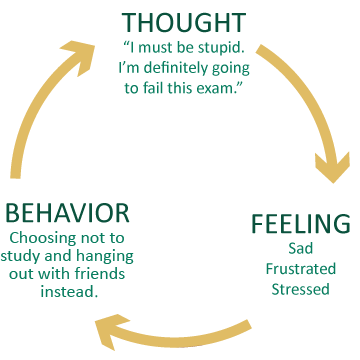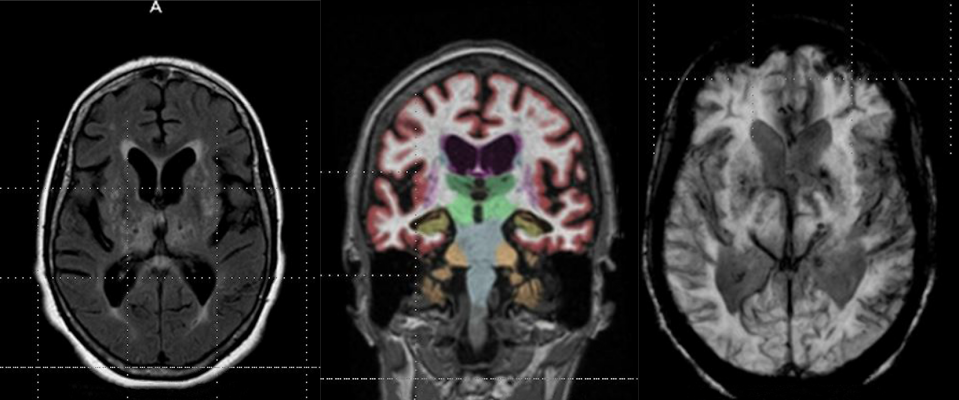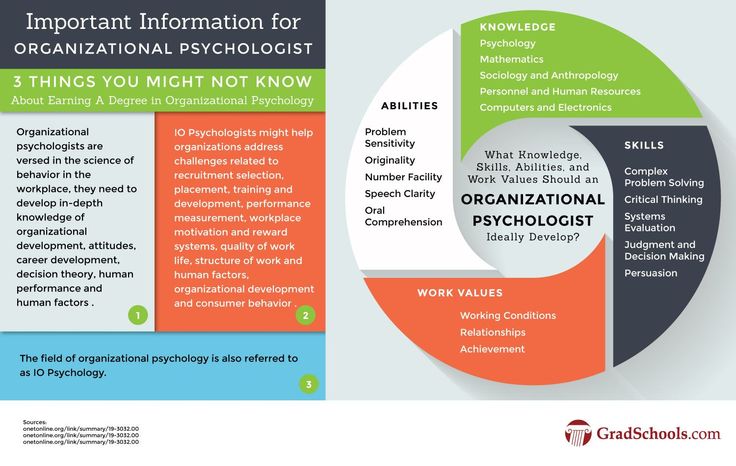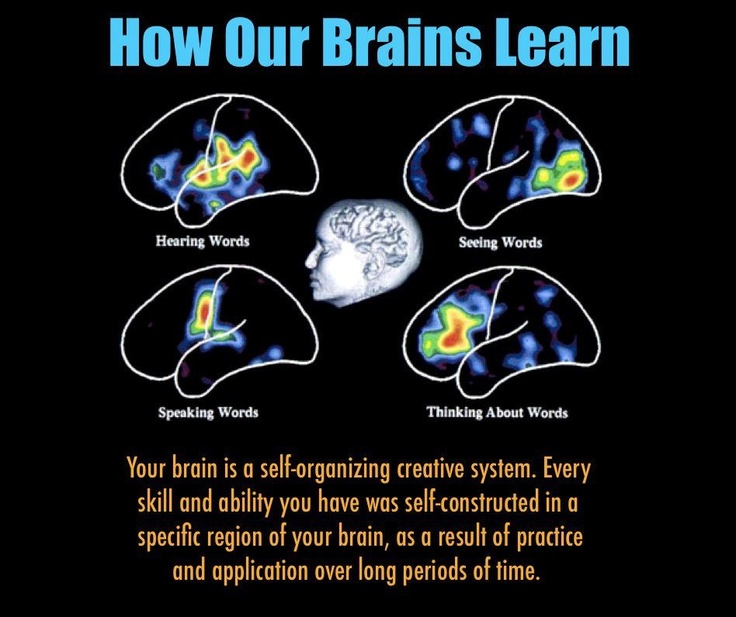Behavioural effects of stress
How Does Stress Influence Behavior?
February 26, 2015
In a recent poll of 2,500 Americans from across the country, 49% said that they had "a major stressful event or experience in the past year". Stress can contribute to health problems such as headaches, high blood pressure, heart problems, and skin conditions. Stress may also influence cognitive processes because it is associated with elevated levels of cortisol, a hormone that can influence brain functioning.
Of course, experimenters can't recreate real-life stressors in the lab. Instead, they induce a laboratory analog such as cold pressor stress (CPS) where participants submerge their non-dominant arm in ice-cold water. This causes a painful sensation and elevates cortisol levels. Control participants submerge their arm in warm water, which does not produce these effects.
Hupbach and Dorskind (2014, Behavioral Neuroscience) (PDF, 118KB) used CPS to test effects of stress on reactivated memories.
In Session 1, participants saw alternating pictures of animals and objects, and were told to remember the objects. The same pictures were shown 6 times in a pseudo-random order, such that a particular object always followed a particular animal (e.g., dog was always presented before bike).
In Session 2, participants made land/water judgments about a series of animal images. Critically, some of the animal images were the same as those shown in Session 1, and were therefore expected to reactivate memory for the associated object (e.g., dog should reactivate bike). Next, participants were exposed to CPS or the control treatment.
In Session 3, participants listed all the objects they could remember from Session 1.
In the control group, reactivated objects were remembered better than objects that were not reactivated. However, this benefit for reactivated items was absent in the stress group. Moreover, the stress and control groups differed in memory for reactivated objects, but did not differ in memory for non-reactivated objects, suggesting that stress selectively impaired memory for reactivated items.
Hupbach and Dorskind found that stress influenced cognitive processing over which participants did not have conscious control. But stress may also change overt behavior. For example, Pool and colleagues (2015, Journal of Experimental Psychology: Animal Learning and Cognition) (PDF, 260KB) examined the influence of stress on reward pursuit.
In Phase 1, geometric shapes were presented one at a time. Participants were told that squeezing a handgrip during "special" 1-second windows would trigger a chocolate odor. They could choose when to squeeze the handgrip, and were encouraged to rely on their intuition.
In Phase 2, one of the geometric shapes was associated with the chocolate odor via Pavlovian conditioning. After Phase 2, stress was induced in half the participants via CPS.
In Phase 3, the Phase 1 task was repeated.
All participants squeezed the handgrip more when the shape associated with the chocolate odor in Phase 2 was presented.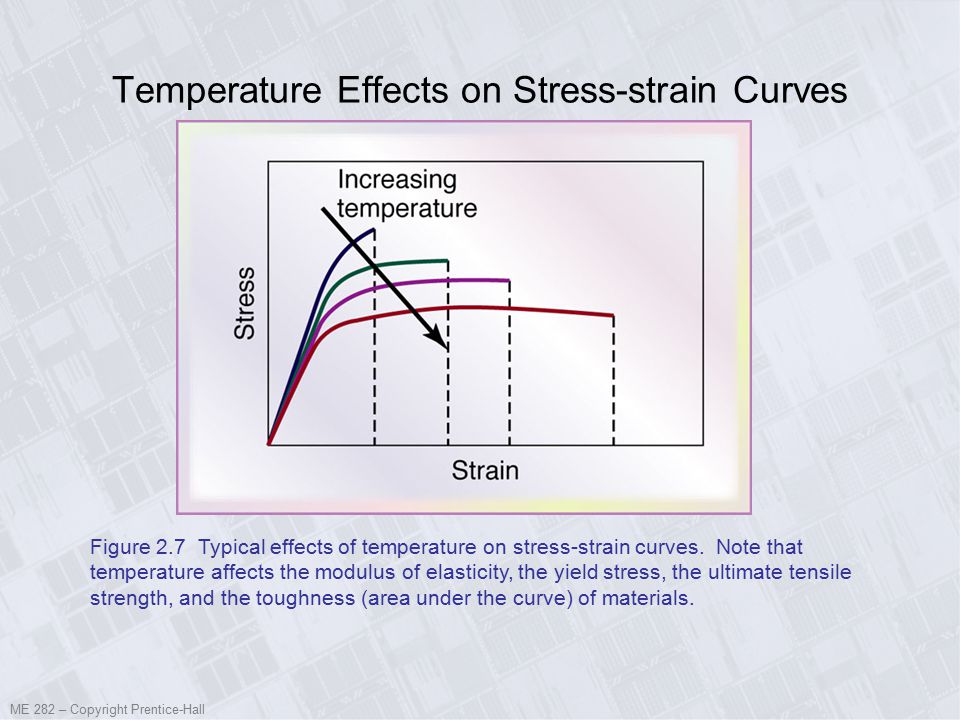 However, this effect was larger in the stress group. That is, participants in the stress group made more squeezes to the stimulus associated with the chocolate odor than control participants, suggesting greater desire for the reward. Interestingly, the groups did not differ in their ratings of perceived pleasantness of the chocolate odor at the end of the experiment.
However, this effect was larger in the stress group. That is, participants in the stress group made more squeezes to the stimulus associated with the chocolate odor than control participants, suggesting greater desire for the reward. Interestingly, the groups did not differ in their ratings of perceived pleasantness of the chocolate odor at the end of the experiment.
Thus, stressed participants worked harder to obtain the chocolate odor reward (i.e., greater wanting), even though they did not enjoy it more (i.e., equal liking). This dissociation of wanting and liking parallels a common observation after extended exposure to drugs of abuse.
Other Interesting Reading
- Aust & Braunöder (2015, Journal of Comparative Psychology) investigate reliance on global vs. local processing for exemplar and rule-based categorization in humans and pigeons.
- Donkin et al. (online first, Journal of Experimental Psychology: Learning, Memory, and Cognition) address challenges in identifying the strategy participants use in categorization tasks.

Return to PeePs homepage
Date created: 2015
The content I just read:
Comment:
How Stress Affects Our Bodies and Behavior
When we're stressed, what happens in our bodies? What are the physical symptoms? How does our behavior change? Greenville health coach Aaron Benator explains.
What is stress?
The first thing I'd like to do is talk about the definition of stress. Stress is a response to a change in the environment. There are two types of stress:
- Eustress, which is a good change.
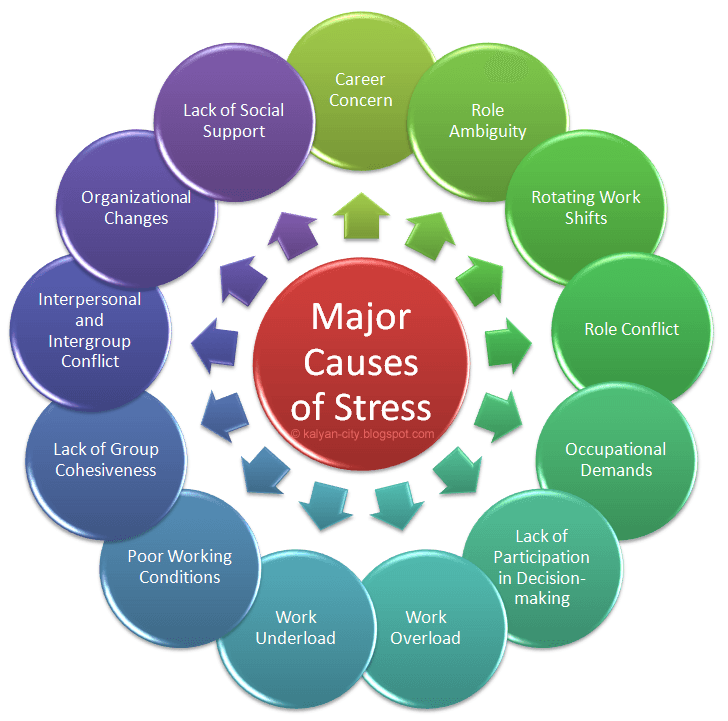 It can be when we are encouraged to accomplish something and we're motivated and we feel positive.
It can be when we are encouraged to accomplish something and we're motivated and we feel positive. - Distress, which is what we typically think of. This is going to be an overriding, negative sensation, lack of motivation, a feeling of overwhelm, those kinds of things.
There are also two kinds of stress — acute and chronic. Acute is short-term. And chronic is long-term. Or when we think that something is going to be long-term, that would be chronic stress.
What happens to the body when stressed?
Three chemicals are made when the body senses something that causes distress is three chemicals — norepinephrine, adrenaline, and cortisol.
Norepinephrine and adrenaline are very similar. The one difference is that norepinephrine is also made in the brain, not just the adrenal glands, kind of as a backup system. It is responsible for alertness and awareness.
Cortisol is responsible for fluid balance and blood pressure and fluid balance is only made in the adrenal glands near the kidneys.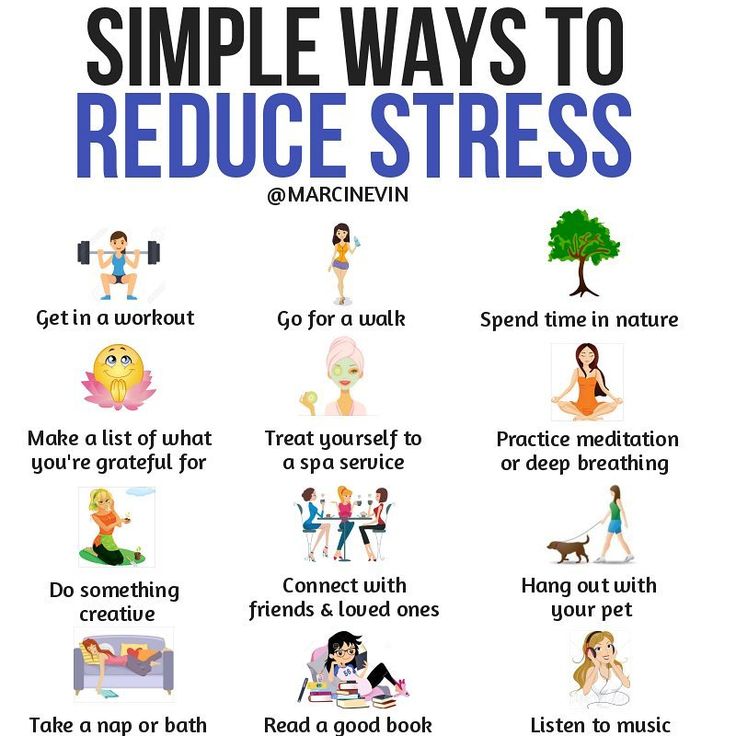
Some symptoms of distress are low energy, when we feel like we just can't do anything, when we feel like we can't accomplish what we might want to accomplish.
Headaches. There can be sleeping changes with excessive levels of distress. This can be insomnia, where we feel like we do not sleep restfully, or we feel like we do not sleep at all. Or it can be excessive sleeping. Stress can also present a loss of libido or impotence and as frequent sickness.
If you're frequently sick or you feel like you get sick more than other people, it might be because there's some chronic distress, that is maybe not at the surface, but somewhere in your experience.
Distress can also cause musculoskeletal issues, like aches and pains, tense muscles, and rapid heartbeat. In the long run, these aches and pains, tense muscles, and rapid heartbeats can cause a lot of serious problems.
There are other symptoms of distress. These are usually seen in the gastrointestinal system. This can be an upset stomach or poor digestion.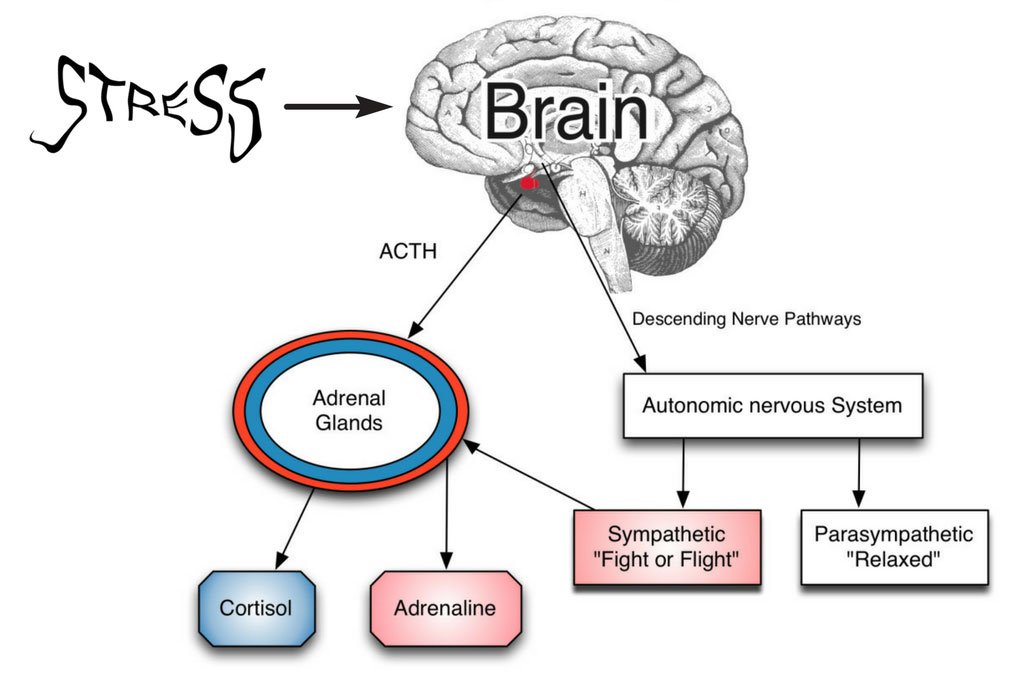 We can think of something like butterflies in the stomach.
We can think of something like butterflies in the stomach.
Of course, that can be eustress, when we're nervous that we need to accomplish something, but at the same time, we're feeling kind of good about it. We always remember the butterflies in the stomach from a presentation in elementary school or middle school or high school or college or whatever.
On the other end of this digestive issue is diarrhea or constipation or nausea. So again, we see that wide spectrum.
What happens to our behavior when stressed?
There can also be emotional changes when someone is suffering through periods of stress. These can be appetite changes, which can go along with changes in weight, either weight gain or weight loss.
Depression can also be a symptom of excessive stress for too long. Anxiety, a sense of nervousness or agitation, or moodiness, irritability, anger. Or the changes of the moods between depression or anxiety and back again, or your ability to anger and back again.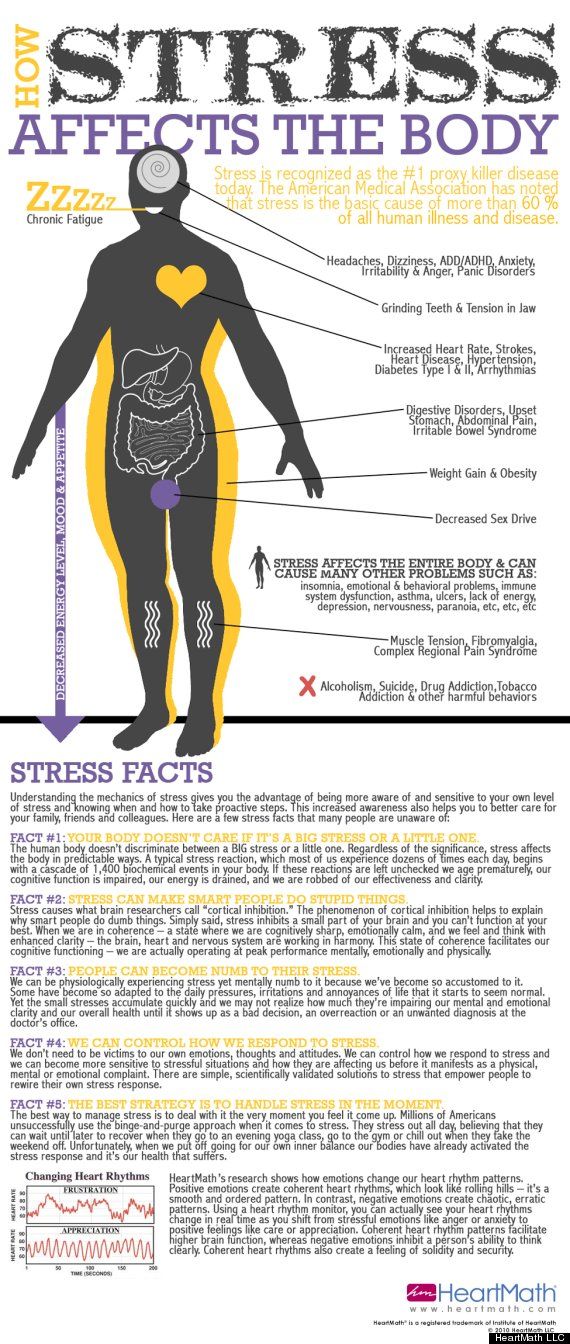
We can also feel overwhelmed when we are under stress, and there's always the issue of loneliness and isolation. There is an argument that when someone is stressed, they want to be alone. It might be a time for recovery.
But of course, there are some long-term issues that might come from long-term loneliness and isolation. We know that loneliness and isolation are associated with a reduced immune function.
More on Stress
Feeling stressed? Check out some of our other articles on stress.
- 3 Ways to Overcome Stress
- 7 Fun Activities to Relieve Stress
- Primary Care vs. Counseling for Stress Management
Psychology of stress: theory and practice
%PDF-1.5 % 10 obj > /Metadata 4 0 R >> endobj 5 0 obj /Author /Title >> endobj 20 obj > endobj 3 0 obj > endobj 40 obj > stream
 32 841.92] /Contents[129 0 R 130 0 R 131 0 R] /group> /Tabs /S /StructParents 0 /Annots [132 0R] >> endobj 70 obj > /ProcSet [/PDF /Text /ImageB /ImageC /ImageI] >> /MediaBox [0 0 595.32 841.92] /Contents 134 0 R /group> /Tabs /S /StructParents 1 >> endobj 80 obj > /ProcSet [/PDF /Text /ImageB /ImageC /ImageI] >> /MediaBox [0 0 595.32 841.92] /Contents 135 0 R /group> /Tabs /S /StructParents 2 >> endobj 9 0 obj > /ProcSet [/PDF /Text /ImageB /ImageC /ImageI] >> /MediaBox[0 0 595.32 841.92] /Contents 136 0 R /group> /Tabs /S /StructParents 3 >> endobj 10 0 obj > /ProcSet [/PDF /Text /ImageB /ImageC /ImageI] >> /MediaBox [0 0 595.32 841.92] /Contents 137 0 R /group> /Tabs /S /StructParents 4 >> endobj 11 0 obj > /ProcSet [/PDF /Text /ImageB /ImageC /ImageI] >> /MediaBox [0 0 595.32 841.92] /Contents 138 0 R /group> /Tabs /S /StructParents 5 >> endobj 12 0 obj > /ProcSet [/PDF /Text /ImageB /ImageC /ImageI] >> /MediaBox[0 0 595.32 841.92] /Contents 140 0 R /group> /Tabs /S /StructParents 6 >> endobj 13 0 obj > /ProcSet [/PDF /Text /ImageB /ImageC /ImageI] >> /MediaBox [0 0 595.
32 841.92] /Contents[129 0 R 130 0 R 131 0 R] /group> /Tabs /S /StructParents 0 /Annots [132 0R] >> endobj 70 obj > /ProcSet [/PDF /Text /ImageB /ImageC /ImageI] >> /MediaBox [0 0 595.32 841.92] /Contents 134 0 R /group> /Tabs /S /StructParents 1 >> endobj 80 obj > /ProcSet [/PDF /Text /ImageB /ImageC /ImageI] >> /MediaBox [0 0 595.32 841.92] /Contents 135 0 R /group> /Tabs /S /StructParents 2 >> endobj 9 0 obj > /ProcSet [/PDF /Text /ImageB /ImageC /ImageI] >> /MediaBox[0 0 595.32 841.92] /Contents 136 0 R /group> /Tabs /S /StructParents 3 >> endobj 10 0 obj > /ProcSet [/PDF /Text /ImageB /ImageC /ImageI] >> /MediaBox [0 0 595.32 841.92] /Contents 137 0 R /group> /Tabs /S /StructParents 4 >> endobj 11 0 obj > /ProcSet [/PDF /Text /ImageB /ImageC /ImageI] >> /MediaBox [0 0 595.32 841.92] /Contents 138 0 R /group> /Tabs /S /StructParents 5 >> endobj 12 0 obj > /ProcSet [/PDF /Text /ImageB /ImageC /ImageI] >> /MediaBox[0 0 595.32 841.92] /Contents 140 0 R /group> /Tabs /S /StructParents 6 >> endobj 13 0 obj > /ProcSet [/PDF /Text /ImageB /ImageC /ImageI] >> /MediaBox [0 0 595.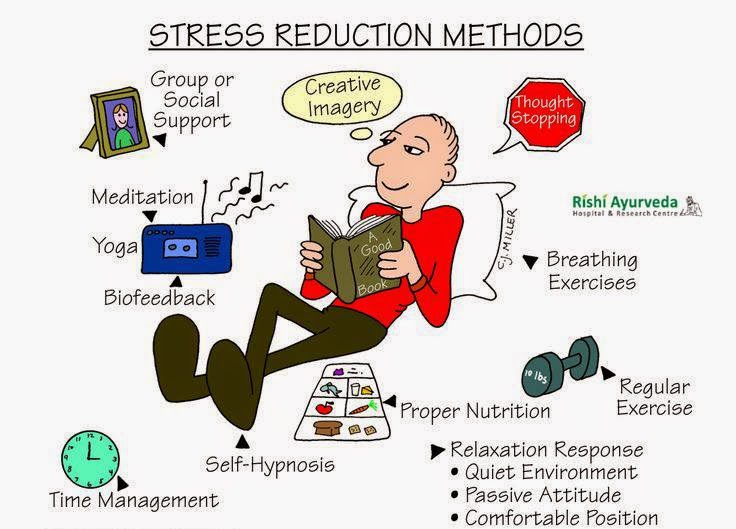 32 841.92] /Contents 141 0 R /group> /Tabs /S /StructParents 7 >> endobj 14 0 obj > /ProcSet [/PDF /Text /ImageB /ImageC /ImageI] >> /MediaBox [0 0 595.32 841.92] /Contents 142 0R /group> /Tabs /S /StructParents 8 >> endobj 15 0 obj > /ProcSet [/PDF /Text /ImageB /ImageC /ImageI] >> /MediaBox[0 0 595.32 841.92] /Contents 143 0 R /group> /Tabs /S /StructParents 9 >> endobj 16 0 obj > /ProcSet [/PDF /Text /ImageB /ImageC /ImageI] >> /MediaBox [0 0 595.32 841.92] /Contents 145 0R /group> /Tabs /S /StructParents 10 >> endobj 17 0 obj > /ProcSet [/PDF /Text /ImageB /ImageC /ImageI] >> /MediaBox [0 0 595.32 841.92] /Contents 148 0 R /group>
/Tabs /S /StructParents 11 >> endobj 18 0 obj > /ProcSet [/PDF /Text /ImageB /ImageC /ImageI] >> /MediaBox[0 0 595.32 841.92] /Contents 149 0 R /group> /Tabs /S /StructParents 12 >> endobj 19 0 obj > /ProcSet [/PDF /Text /ImageB /ImageC /ImageI] >> /MediaBox [0 0 595.32 841.92] /Contents 150 0 R /group> /Tabs /S /StructParents 13 >> endobj 20 0 obj > /ProcSet [/PDF /Text /ImageB /ImageC /ImageI] >> /MediaBox [0 0 595.
32 841.92] /Contents 141 0 R /group> /Tabs /S /StructParents 7 >> endobj 14 0 obj > /ProcSet [/PDF /Text /ImageB /ImageC /ImageI] >> /MediaBox [0 0 595.32 841.92] /Contents 142 0R /group> /Tabs /S /StructParents 8 >> endobj 15 0 obj > /ProcSet [/PDF /Text /ImageB /ImageC /ImageI] >> /MediaBox[0 0 595.32 841.92] /Contents 143 0 R /group> /Tabs /S /StructParents 9 >> endobj 16 0 obj > /ProcSet [/PDF /Text /ImageB /ImageC /ImageI] >> /MediaBox [0 0 595.32 841.92] /Contents 145 0R /group> /Tabs /S /StructParents 10 >> endobj 17 0 obj > /ProcSet [/PDF /Text /ImageB /ImageC /ImageI] >> /MediaBox [0 0 595.32 841.92] /Contents 148 0 R /group>
/Tabs /S /StructParents 11 >> endobj 18 0 obj > /ProcSet [/PDF /Text /ImageB /ImageC /ImageI] >> /MediaBox[0 0 595.32 841.92] /Contents 149 0 R /group> /Tabs /S /StructParents 12 >> endobj 19 0 obj > /ProcSet [/PDF /Text /ImageB /ImageC /ImageI] >> /MediaBox [0 0 595.32 841.92] /Contents 150 0 R /group> /Tabs /S /StructParents 13 >> endobj 20 0 obj > /ProcSet [/PDF /Text /ImageB /ImageC /ImageI] >> /MediaBox [0 0 595.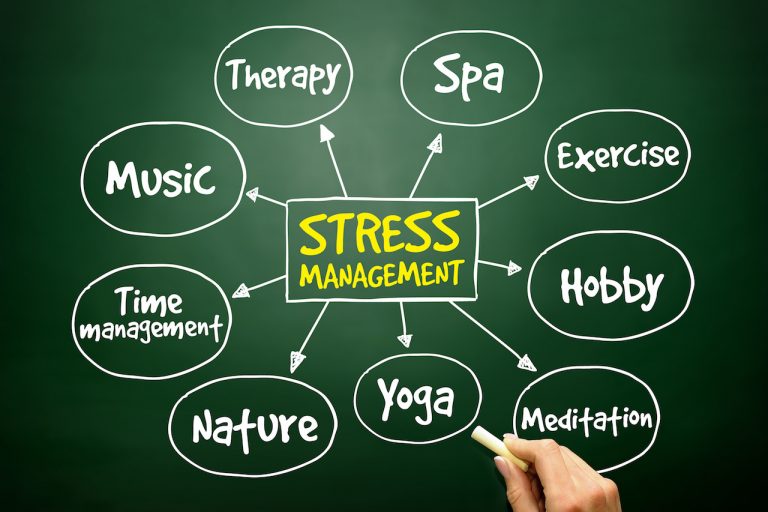 32 841.92] /Contents 151 0 R /group> /Tabs /S /StructParents 14 >> endobj 21 0 obj > /ProcSet [/PDF /Text /ImageB /ImageC /ImageI] >> /MediaBox[0 0 595.32 841.92] /Contents 152 0 R /group> /Tabs /S /StructParents 15 >> endobj 22 0 obj > /ProcSet [/PDF /Text /ImageB /ImageC /ImageI] >> /MediaBox [0 0 595.32 841.92] /Contents 153 0 R /group> /Tabs /S /StructParents 16 >> endobj 23 0 obj > /ProcSet [/PDF /Text /ImageB /ImageC /ImageI] >> /MediaBox [0 0 595.32 841.92] /Contents 154 0R /group> /Tabs /S /StructParents 17 >> endobj 24 0 obj > /ProcSet [/PDF /Text /ImageB /ImageC /ImageI] >> /MediaBox[0 0 595.32 841.92] /Contents 155 0R /group> /Tabs /S /StructParents 18 >> endobj 25 0 obj > /ProcSet [/PDF /Text /ImageB /ImageC /ImageI] >> /MediaBox [0 0 595.32 841.92] /Contents 156 0R /group> /Tabs /S /StructParents 19 >> endobj 26 0 obj > /ProcSet [/PDF /Text /ImageB /ImageC /ImageI] >> /MediaBox [0 0 595.32 841.92] /Contents 157 0R /group> /Tabs /S /StructParents 20 >> endobj 27 0 obj > /ExtGState> /ProcSet [/PDF /Text /ImageB /ImageC /ImageI] >> /MediaBox[0 0 595.
32 841.92] /Contents 151 0 R /group> /Tabs /S /StructParents 14 >> endobj 21 0 obj > /ProcSet [/PDF /Text /ImageB /ImageC /ImageI] >> /MediaBox[0 0 595.32 841.92] /Contents 152 0 R /group> /Tabs /S /StructParents 15 >> endobj 22 0 obj > /ProcSet [/PDF /Text /ImageB /ImageC /ImageI] >> /MediaBox [0 0 595.32 841.92] /Contents 153 0 R /group> /Tabs /S /StructParents 16 >> endobj 23 0 obj > /ProcSet [/PDF /Text /ImageB /ImageC /ImageI] >> /MediaBox [0 0 595.32 841.92] /Contents 154 0R /group> /Tabs /S /StructParents 17 >> endobj 24 0 obj > /ProcSet [/PDF /Text /ImageB /ImageC /ImageI] >> /MediaBox[0 0 595.32 841.92] /Contents 155 0R /group> /Tabs /S /StructParents 18 >> endobj 25 0 obj > /ProcSet [/PDF /Text /ImageB /ImageC /ImageI] >> /MediaBox [0 0 595.32 841.92] /Contents 156 0R /group> /Tabs /S /StructParents 19 >> endobj 26 0 obj > /ProcSet [/PDF /Text /ImageB /ImageC /ImageI] >> /MediaBox [0 0 595.32 841.92] /Contents 157 0R /group> /Tabs /S /StructParents 20 >> endobj 27 0 obj > /ExtGState> /ProcSet [/PDF /Text /ImageB /ImageC /ImageI] >> /MediaBox[0 0 595.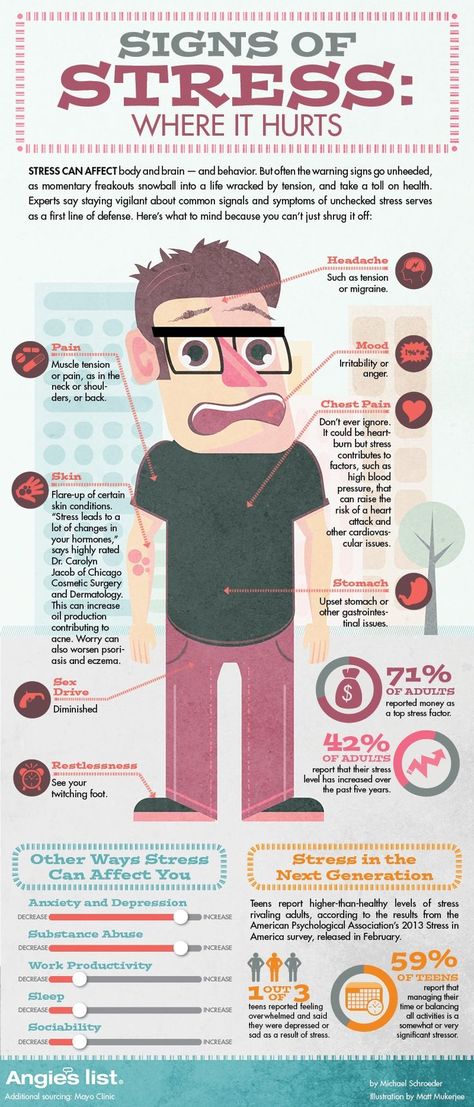 32 841.92] /Contents 160 0 R /group> /Tabs /S /StructParents 21 >> endobj 28 0 obj > /ProcSet [/PDF /Text /ImageB /ImageC /ImageI] >> /MediaBox [0 0 595.32 841.92] /Contents 161 0 R /group> /Tabs /S /StructParents 22 >> endobj 29 0 obj > /ProcSet [/PDF /Text /ImageB /ImageC /ImageI] >> /MediaBox [0 0 595.32 841.92] /Contents 162 0 R /group> /Tabs /S /StructParents 23 >> endobj 30 0 obj > /ProcSet [/PDF /Text /ImageB /ImageC /ImageI] >> /MediaBox[0 0 595.32 841.92] /Contents 163 0 R /group> /Tabs /S /StructParents 24 >> endobj 31 0 obj > /ProcSet [/PDF /Text /ImageB /ImageC /ImageI] >> /MediaBox [0 0 595.32 841.92] /Contents 164 0R /group> /Tabs /S /StructParents 25 >> endobj 32 0 obj > /ProcSet [/PDF /Text /ImageB /ImageC /ImageI] >> /MediaBox [0 0 595.32 841.92] /Contents 165 0 R /group> /Tabs /S /StructParents 26 >> endobj 33 0 obj > /ProcSet [/PDF /Text /ImageB /ImageC /ImageI] >> /MediaBox[0 0 595.32 841.92] /Contents 166 0 R /group> /Tabs /S /StructParents 27 >> endobj 34 0 obj > /ProcSet [/PDF /Text /ImageB /ImageC /ImageI] >> /MediaBox [0 0 595.
32 841.92] /Contents 160 0 R /group> /Tabs /S /StructParents 21 >> endobj 28 0 obj > /ProcSet [/PDF /Text /ImageB /ImageC /ImageI] >> /MediaBox [0 0 595.32 841.92] /Contents 161 0 R /group> /Tabs /S /StructParents 22 >> endobj 29 0 obj > /ProcSet [/PDF /Text /ImageB /ImageC /ImageI] >> /MediaBox [0 0 595.32 841.92] /Contents 162 0 R /group> /Tabs /S /StructParents 23 >> endobj 30 0 obj > /ProcSet [/PDF /Text /ImageB /ImageC /ImageI] >> /MediaBox[0 0 595.32 841.92] /Contents 163 0 R /group> /Tabs /S /StructParents 24 >> endobj 31 0 obj > /ProcSet [/PDF /Text /ImageB /ImageC /ImageI] >> /MediaBox [0 0 595.32 841.92] /Contents 164 0R /group> /Tabs /S /StructParents 25 >> endobj 32 0 obj > /ProcSet [/PDF /Text /ImageB /ImageC /ImageI] >> /MediaBox [0 0 595.32 841.92] /Contents 165 0 R /group> /Tabs /S /StructParents 26 >> endobj 33 0 obj > /ProcSet [/PDF /Text /ImageB /ImageC /ImageI] >> /MediaBox[0 0 595.32 841.92] /Contents 166 0 R /group> /Tabs /S /StructParents 27 >> endobj 34 0 obj > /ProcSet [/PDF /Text /ImageB /ImageC /ImageI] >> /MediaBox [0 0 595. 32 841.92] /Contents 167 0R /group> /Tabs /S /StructParents 28 >> endobj 35 0 obj > /ProcSet [/PDF /Text /ImageB /ImageC /ImageI] >> /MediaBox [0 0 595.32 841.92] /Contents 168 0 R /group> /Tabs /S /StructParents 29 >> endobj 36 0 obj > /ProcSet [/PDF /Text /ImageB /ImageC /ImageI] >> /MediaBox[0 0 595.32 841.92] /Contents 169 0 R /group> /Tabs /S /StructParents 30 >> endobj 37 0 obj > /ProcSet [/PDF /Text /ImageB /ImageC /ImageI] >> /MediaBox [0 0 595.32 841.92] /Contents 170 0 R /group> /Tabs /S /StructParents 31 >> endobj 38 0 obj > /ProcSet [/PDF /Text /ImageB /ImageC /ImageI] >> /MediaBox [0 0 595.32 841.92] /Contents 171 0 R /group> /Tabs /S /StructParents 32 >> endobj 39 0 obj > /XObject> /ExtGState> /ProcSet [/PDF /Text /ImageB /ImageC /ImageI] >> /MediaBox[0 0 595.32 841.92] /Contents 173 0 R /group> /Tabs /S /StructParents 33 >> endobj 40 0 obj > /XObject> /ExtGState> /ProcSet [/PDF /Text /ImageB /ImageC /ImageI] >> /MediaBox [0 0 595.32 841.92] /Contents 176 0 R /group> /Tabs /S /StructParents 34 >> endobj 41 0 obj > /ProcSet [/PDF /Text /ImageB /ImageC /ImageI] >> /MediaBox [0 0 595.
32 841.92] /Contents 167 0R /group> /Tabs /S /StructParents 28 >> endobj 35 0 obj > /ProcSet [/PDF /Text /ImageB /ImageC /ImageI] >> /MediaBox [0 0 595.32 841.92] /Contents 168 0 R /group> /Tabs /S /StructParents 29 >> endobj 36 0 obj > /ProcSet [/PDF /Text /ImageB /ImageC /ImageI] >> /MediaBox[0 0 595.32 841.92] /Contents 169 0 R /group> /Tabs /S /StructParents 30 >> endobj 37 0 obj > /ProcSet [/PDF /Text /ImageB /ImageC /ImageI] >> /MediaBox [0 0 595.32 841.92] /Contents 170 0 R /group> /Tabs /S /StructParents 31 >> endobj 38 0 obj > /ProcSet [/PDF /Text /ImageB /ImageC /ImageI] >> /MediaBox [0 0 595.32 841.92] /Contents 171 0 R /group> /Tabs /S /StructParents 32 >> endobj 39 0 obj > /XObject> /ExtGState> /ProcSet [/PDF /Text /ImageB /ImageC /ImageI] >> /MediaBox[0 0 595.32 841.92] /Contents 173 0 R /group> /Tabs /S /StructParents 33 >> endobj 40 0 obj > /XObject> /ExtGState> /ProcSet [/PDF /Text /ImageB /ImageC /ImageI] >> /MediaBox [0 0 595.32 841.92] /Contents 176 0 R /group> /Tabs /S /StructParents 34 >> endobj 41 0 obj > /ProcSet [/PDF /Text /ImageB /ImageC /ImageI] >> /MediaBox [0 0 595.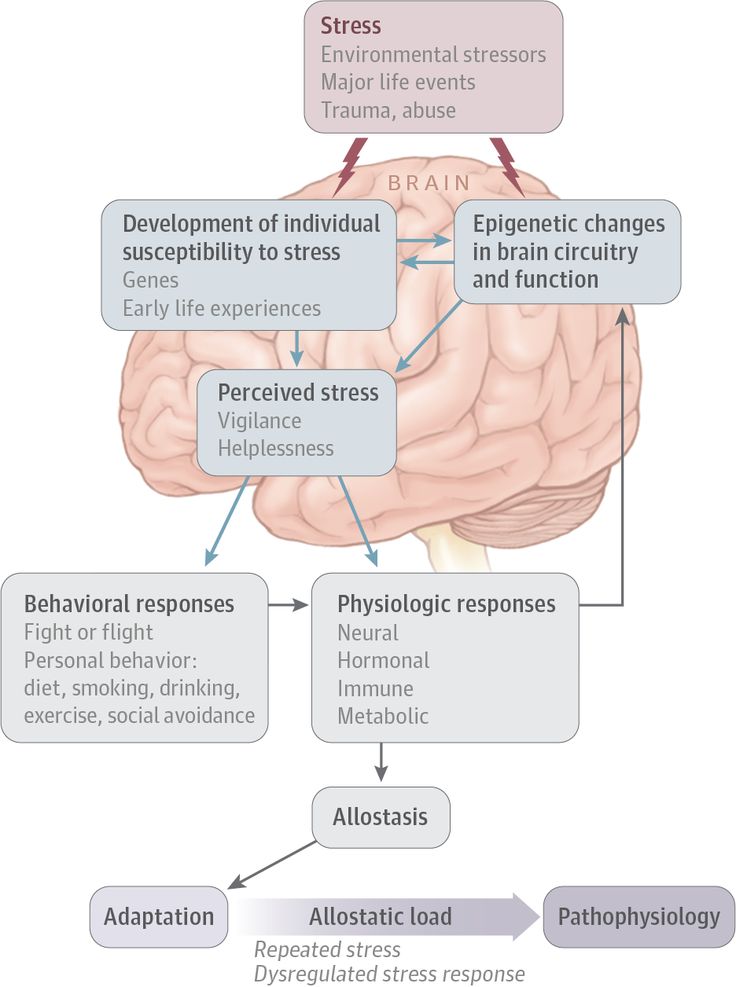 32 841.92] /Contents 177 0 R /group> /Tabs /S /StructParents 35 >> endobj 42 0 obj > /ProcSet [/PDF /Text /ImageB /ImageC /ImageI] >> /MediaBox[0 0 595.32 841.92] /Contents 178 0 R /group> /Tabs /S /StructParents 36 >> endobj 43 0 obj > /ProcSet [/PDF /Text /ImageB /ImageC /ImageI] >> /MediaBox [0 0 595.32 841.92] /Contents 179 0 R /group> /Tabs /S /StructParents 37 >> endobj 44 0 obj > /ProcSet [/PDF /Text /ImageB /ImageC /ImageI] >> /MediaBox [0 0 595.32 841.92] /Contents 180 0 R /group> /Tabs /S /StructParents 38 >> endobj 45 0 obj > /ProcSet [/PDF /Text /ImageB /ImageC /ImageI] >> /MediaBox[0 0 595.32 841.92] /Contents 181 0 R /group> /Tabs /S /StructParents 39 >> endobj 46 0 obj > /ProcSet [/PDF /Text /ImageB /ImageC /ImageI] >> /MediaBox [0 0 595.32 841.92] /Contents 182 0 R /group> /Tabs /S /StructParents 40 >> endobj 47 0 obj > /ProcSet [/PDF /Text /ImageB /ImageC /ImageI] >> /MediaBox [0 0 595.32 841.92] /Contents 183 0 R /group> /Tabs /S /StructParents 41 >> endobj 48 0 obj > /ProcSet [/PDF /Text /ImageB /ImageC /ImageI] >> /MediaBox[0 0 595.
32 841.92] /Contents 177 0 R /group> /Tabs /S /StructParents 35 >> endobj 42 0 obj > /ProcSet [/PDF /Text /ImageB /ImageC /ImageI] >> /MediaBox[0 0 595.32 841.92] /Contents 178 0 R /group> /Tabs /S /StructParents 36 >> endobj 43 0 obj > /ProcSet [/PDF /Text /ImageB /ImageC /ImageI] >> /MediaBox [0 0 595.32 841.92] /Contents 179 0 R /group> /Tabs /S /StructParents 37 >> endobj 44 0 obj > /ProcSet [/PDF /Text /ImageB /ImageC /ImageI] >> /MediaBox [0 0 595.32 841.92] /Contents 180 0 R /group> /Tabs /S /StructParents 38 >> endobj 45 0 obj > /ProcSet [/PDF /Text /ImageB /ImageC /ImageI] >> /MediaBox[0 0 595.32 841.92] /Contents 181 0 R /group> /Tabs /S /StructParents 39 >> endobj 46 0 obj > /ProcSet [/PDF /Text /ImageB /ImageC /ImageI] >> /MediaBox [0 0 595.32 841.92] /Contents 182 0 R /group> /Tabs /S /StructParents 40 >> endobj 47 0 obj > /ProcSet [/PDF /Text /ImageB /ImageC /ImageI] >> /MediaBox [0 0 595.32 841.92] /Contents 183 0 R /group> /Tabs /S /StructParents 41 >> endobj 48 0 obj > /ProcSet [/PDF /Text /ImageB /ImageC /ImageI] >> /MediaBox[0 0 595.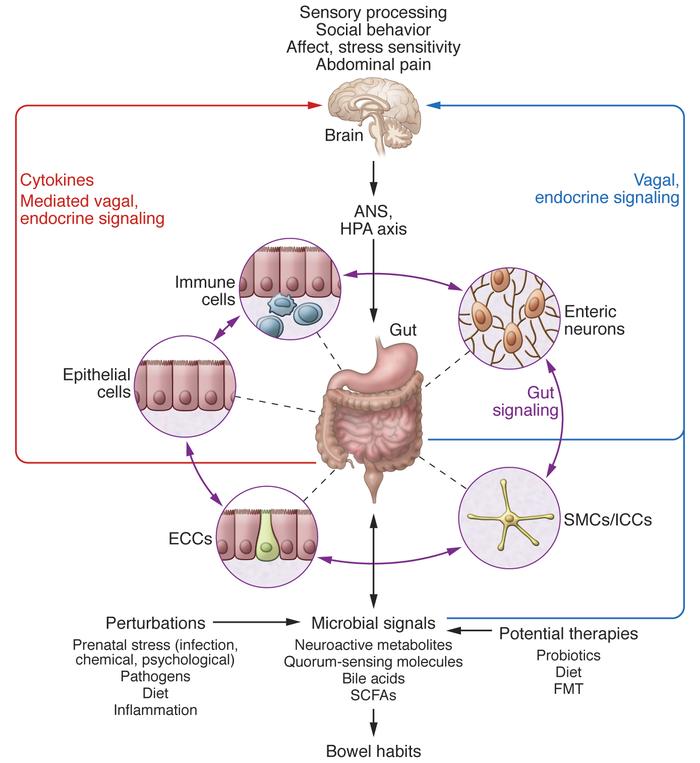 32 841.92] /Contents 184 0R /group> /Tabs /S /StructParents 42 >> endobj 49 0 obj > /ProcSet [/PDF /Text /ImageB /ImageC /ImageI] >> /MediaBox [0 0 595.32 841.92] /Contents 185 0R /group> /Tabs /S /StructParents 43 >> endobj 50 0 obj > /ProcSet [/PDF /Text /ImageB /ImageC /ImageI] >> /MediaBox [0 0 595.32 841.92] /Contents 186 0 R /group> /Tabs /S /StructParents 44 >> endobj 51 0 obj > /ProcSet [/PDF /Text /ImageB /ImageC /ImageI] >> /MediaBox[0 0 595.32 841.92] /Contents 187 0 R /group> /Tabs /S /StructParents 45 >> endobj 52 0 obj > /ProcSet [/PDF /Text /ImageB /ImageC /ImageI] >> /MediaBox [0 0 595.32 841.92] /Contents 188 0 R /group> /Tabs /S /StructParents 46 >> endobj 53 0 obj > /ProcSet [/PDF /Text /ImageB /ImageC /ImageI] >> /MediaBox [0 0 595.32 841.92] /Contents 189 0 R /group> /Tabs /S /StructParents 47 >> endobj 54 0 obj > /ProcSet [/PDF /Text /ImageB /ImageC /ImageI] >> /MediaBox[0 0 595.32 841.92] /Contents 190 0R /group> /Tabs /S /StructParents 48 >> endobj 55 0 obj > /ProcSet [/PDF /Text /ImageB /ImageC /ImageI] >> /MediaBox [0 0 595.
32 841.92] /Contents 184 0R /group> /Tabs /S /StructParents 42 >> endobj 49 0 obj > /ProcSet [/PDF /Text /ImageB /ImageC /ImageI] >> /MediaBox [0 0 595.32 841.92] /Contents 185 0R /group> /Tabs /S /StructParents 43 >> endobj 50 0 obj > /ProcSet [/PDF /Text /ImageB /ImageC /ImageI] >> /MediaBox [0 0 595.32 841.92] /Contents 186 0 R /group> /Tabs /S /StructParents 44 >> endobj 51 0 obj > /ProcSet [/PDF /Text /ImageB /ImageC /ImageI] >> /MediaBox[0 0 595.32 841.92] /Contents 187 0 R /group> /Tabs /S /StructParents 45 >> endobj 52 0 obj > /ProcSet [/PDF /Text /ImageB /ImageC /ImageI] >> /MediaBox [0 0 595.32 841.92] /Contents 188 0 R /group> /Tabs /S /StructParents 46 >> endobj 53 0 obj > /ProcSet [/PDF /Text /ImageB /ImageC /ImageI] >> /MediaBox [0 0 595.32 841.92] /Contents 189 0 R /group> /Tabs /S /StructParents 47 >> endobj 54 0 obj > /ProcSet [/PDF /Text /ImageB /ImageC /ImageI] >> /MediaBox[0 0 595.32 841.92] /Contents 190 0R /group> /Tabs /S /StructParents 48 >> endobj 55 0 obj > /ProcSet [/PDF /Text /ImageB /ImageC /ImageI] >> /MediaBox [0 0 595.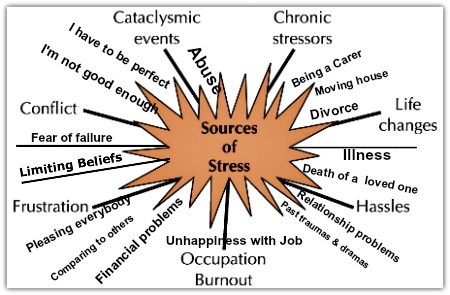 32 841.92] /Contents 191 0 R /group> /Tabs /S /StructParents 49 >> endobj 56 0 obj > /ProcSet [/PDF /Text /ImageB /ImageC /ImageI] >> /MediaBox [0 0 595.32 841.92] /Contents 192 0R /group> /Tabs /S /StructParents 50 >> endobj 57 0 obj > /ProcSet [/PDF /Text /ImageB /ImageC /ImageI] >> /MediaBox[0 0 595.32 841.92] /Contents 193 0 R /group> /Tabs /S /StructParents 51 >> endobj 58 0 obj > /ProcSet [/PDF /Text /ImageB /ImageC /ImageI] >> /MediaBox [0 0 595.32 841.92] /Contents 194 0 R /group> /Tabs /S /StructParents 52 >> endobj 59 0 obj > /ProcSet [/PDF /Text /ImageB /ImageC /ImageI] >> /MediaBox [0 0 595.32 841.92] /Contents 195 0 R /group> /Tabs /S /StructParents 53 >> endobj 60 0 obj > /ProcSet [/PDF /Text /ImageB /ImageC /ImageI] >> /MediaBox[0 0 595.32 841.92] /Contents 196 0 R /group> /Tabs /S /StructParents 54 >> endobj 61 0 obj > /ProcSet [/PDF /Text /ImageB /ImageC /ImageI] >> /MediaBox [0 0 595.32 841.92] /Contents 197 0 R /group> /Tabs /S /StructParents 55 >> endobj 62 0 obj > /ProcSet [/PDF /Text /ImageB /ImageC /ImageI] >> /MediaBox [0 0 595.
32 841.92] /Contents 191 0 R /group> /Tabs /S /StructParents 49 >> endobj 56 0 obj > /ProcSet [/PDF /Text /ImageB /ImageC /ImageI] >> /MediaBox [0 0 595.32 841.92] /Contents 192 0R /group> /Tabs /S /StructParents 50 >> endobj 57 0 obj > /ProcSet [/PDF /Text /ImageB /ImageC /ImageI] >> /MediaBox[0 0 595.32 841.92] /Contents 193 0 R /group> /Tabs /S /StructParents 51 >> endobj 58 0 obj > /ProcSet [/PDF /Text /ImageB /ImageC /ImageI] >> /MediaBox [0 0 595.32 841.92] /Contents 194 0 R /group> /Tabs /S /StructParents 52 >> endobj 59 0 obj > /ProcSet [/PDF /Text /ImageB /ImageC /ImageI] >> /MediaBox [0 0 595.32 841.92] /Contents 195 0 R /group> /Tabs /S /StructParents 53 >> endobj 60 0 obj > /ProcSet [/PDF /Text /ImageB /ImageC /ImageI] >> /MediaBox[0 0 595.32 841.92] /Contents 196 0 R /group> /Tabs /S /StructParents 54 >> endobj 61 0 obj > /ProcSet [/PDF /Text /ImageB /ImageC /ImageI] >> /MediaBox [0 0 595.32 841.92] /Contents 197 0 R /group> /Tabs /S /StructParents 55 >> endobj 62 0 obj > /ProcSet [/PDF /Text /ImageB /ImageC /ImageI] >> /MediaBox [0 0 595.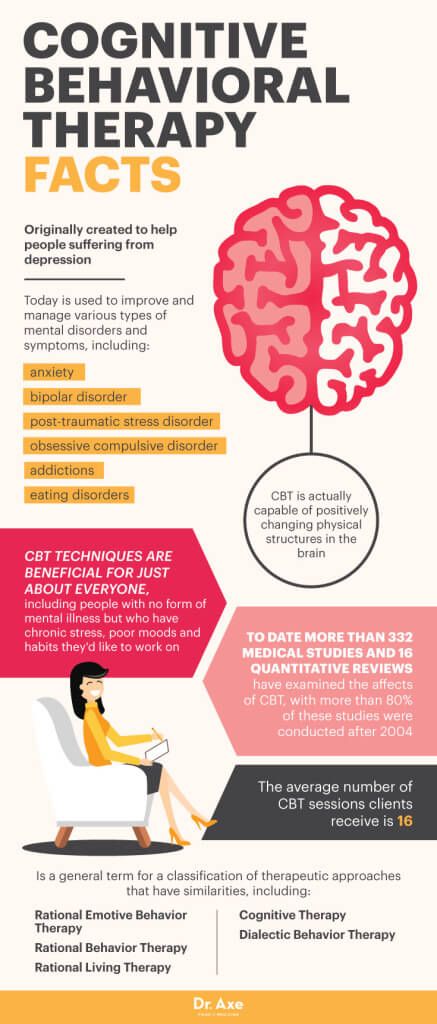 32 841.92] /Contents 205 0 R /group> /Tabs /S /StructParents 63 >> endobj 70 0 obj > /ProcSet [/PDF /Text /ImageB /ImageC /ImageI] >> /MediaBox [0 0 595.32 841.92] /Contents 206 0R /group> /Tabs /S /StructParents 64 >> endobj 71 0 obj > /ProcSet [/PDF /Text /ImageB /ImageC /ImageI] >> /MediaBox [0 0 595.32 841.92] /Contents 207 0 R /group> /Tabs /S /StructParents 65 >> endobj 72 0 obj > /ProcSet [/PDF /Text /ImageB /ImageC /ImageI] >> /MediaBox[0 0 595.32 841.92] /Contents 208 0R /group> /Tabs /S /StructParents 66 >> endobj 73 0 obj > /ProcSet [/PDF /Text /ImageB /ImageC /ImageI] >> /MediaBox [0 0 595.32 841.92] /Contents 209 0 R /group> /Tabs /S /StructParents 67 >> endobj 74 0 obj > /ProcSet [/PDF /Text /ImageB /ImageC /ImageI] >> /MediaBox [0 0 595.32 841.92] /Contents 210 0R /group> /Tabs /S /StructParents 68 >> endobj 75 0 obj > /ProcSet [/PDF /Text /ImageB /ImageC /ImageI] >> /MediaBox[0 0 595.32 841.92] /Contents 211 0 R /group> /Tabs /S /StructParents 69 >> endobj 76 0 obj > /ProcSet [/PDF /Text /ImageB /ImageC /ImageI] >> /MediaBox [0 0 595.
32 841.92] /Contents 205 0 R /group> /Tabs /S /StructParents 63 >> endobj 70 0 obj > /ProcSet [/PDF /Text /ImageB /ImageC /ImageI] >> /MediaBox [0 0 595.32 841.92] /Contents 206 0R /group> /Tabs /S /StructParents 64 >> endobj 71 0 obj > /ProcSet [/PDF /Text /ImageB /ImageC /ImageI] >> /MediaBox [0 0 595.32 841.92] /Contents 207 0 R /group> /Tabs /S /StructParents 65 >> endobj 72 0 obj > /ProcSet [/PDF /Text /ImageB /ImageC /ImageI] >> /MediaBox[0 0 595.32 841.92] /Contents 208 0R /group> /Tabs /S /StructParents 66 >> endobj 73 0 obj > /ProcSet [/PDF /Text /ImageB /ImageC /ImageI] >> /MediaBox [0 0 595.32 841.92] /Contents 209 0 R /group> /Tabs /S /StructParents 67 >> endobj 74 0 obj > /ProcSet [/PDF /Text /ImageB /ImageC /ImageI] >> /MediaBox [0 0 595.32 841.92] /Contents 210 0R /group> /Tabs /S /StructParents 68 >> endobj 75 0 obj > /ProcSet [/PDF /Text /ImageB /ImageC /ImageI] >> /MediaBox[0 0 595.32 841.92] /Contents 211 0 R /group> /Tabs /S /StructParents 69 >> endobj 76 0 obj > /ProcSet [/PDF /Text /ImageB /ImageC /ImageI] >> /MediaBox [0 0 595. 32 841.92] /Contents 212 0R /group> /Tabs /S /StructParents 70 >> endobj 77 0 obj > /ProcSet [/PDF /Text /ImageB /ImageC /ImageI] >> /MediaBox [0 0 595.32 841.92] /Contents 213 0R /group> /Tabs /S /StructParents 71 >> endobj 78 0 obj > /ProcSet [/PDF /Text /ImageB /ImageC /ImageI] >> /MediaBox[0 0 595.32 841.92] /Contents 214 0R /group> /Tabs /S /StructParents 72 >> endobj 79 0 obj > /ProcSet [/PDF /Text /ImageB /ImageC /ImageI] >> /MediaBox [0 0 595.32 841.92] /Contents 215 0 R /group> /Tabs /S /StructParents 73 >> endobj 80 0 obj > /ProcSet [/PDF /Text /ImageB /ImageC /ImageI] >> /MediaBox [0 0 595.32 841.92] /Contents 216 0 R /group> /Tabs /S /StructParents 74 >> endobj 81 0 obj > /ProcSet [/PDF /Text /ImageB /ImageC /ImageI] >> /MediaBox[0 0 595.32 841.92] /Contents 217 0 R /group> /Tabs /S /StructParents 75 >> endobj 82 0 obj > /ProcSet [/PDF /Text /ImageB /ImageC /ImageI] >> /MediaBox [0 0 595.32 841.92] /Contents 218 0 R /group> /Tabs /S /StructParents 76 >> endobj 83 0 obj > /ProcSet [/PDF /Text /ImageB /ImageC /ImageI] >> /MediaBox [0 0 595.
32 841.92] /Contents 212 0R /group> /Tabs /S /StructParents 70 >> endobj 77 0 obj > /ProcSet [/PDF /Text /ImageB /ImageC /ImageI] >> /MediaBox [0 0 595.32 841.92] /Contents 213 0R /group> /Tabs /S /StructParents 71 >> endobj 78 0 obj > /ProcSet [/PDF /Text /ImageB /ImageC /ImageI] >> /MediaBox[0 0 595.32 841.92] /Contents 214 0R /group> /Tabs /S /StructParents 72 >> endobj 79 0 obj > /ProcSet [/PDF /Text /ImageB /ImageC /ImageI] >> /MediaBox [0 0 595.32 841.92] /Contents 215 0 R /group> /Tabs /S /StructParents 73 >> endobj 80 0 obj > /ProcSet [/PDF /Text /ImageB /ImageC /ImageI] >> /MediaBox [0 0 595.32 841.92] /Contents 216 0 R /group> /Tabs /S /StructParents 74 >> endobj 81 0 obj > /ProcSet [/PDF /Text /ImageB /ImageC /ImageI] >> /MediaBox[0 0 595.32 841.92] /Contents 217 0 R /group> /Tabs /S /StructParents 75 >> endobj 82 0 obj > /ProcSet [/PDF /Text /ImageB /ImageC /ImageI] >> /MediaBox [0 0 595.32 841.92] /Contents 218 0 R /group> /Tabs /S /StructParents 76 >> endobj 83 0 obj > /ProcSet [/PDF /Text /ImageB /ImageC /ImageI] >> /MediaBox [0 0 595. 32 841.92] /Contents 219 0 R /group> /Tabs /S /StructParents 77 >> endobj 84 0 obj > /ProcSet [/PDF /Text /ImageB /ImageC /ImageI] >> /MediaBox[0 0 595.32 841.92] /Contents 220 0 R /group> /Tabs /S /StructParents 78 >> endobj 85 0 obj > /ProcSet [/PDF /Text /ImageB /ImageC /ImageI] >> /MediaBox [0 0 595.32 841.92] /Contents 221 0R /group> /Tabs /S /StructParents 79 >> endobj 86 0 obj > /ExtGState> /ProcSet [/PDF /Text /ImageB /ImageC /ImageI] >> /MediaBox [0 0 595.32 841.92] /Contents 222 0 R /group> /Tabs /S /StructParents 80 >> endobj 87 0 obj > /ExtGState> /ProcSet [/PDF /Text /ImageB /ImageC /ImageI] >> /MediaBox[0 0 595.32 841.92] /Contents 223 0R /group> /Tabs /S /StructParents 81 >> endobj 88 0 obj > /ExtGState> /ProcSet [/PDF /Text /ImageB /ImageC /ImageI] >> /MediaBox [0 0 595.32 841.92] /Contents 224 0R /group> /Tabs /S /StructParents 82 >> endobj 89 0 obj > /ExtGState> /ProcSet [/PDF /Text /ImageB /ImageC /ImageI] >> /MediaBox [0 0 595.32 841.92] /Contents 225 0 R /group> /Tabs /S /StructParents 83 >> endobj 90 0 obj > /ExtGState> /ProcSet [/PDF /Text /ImageB /ImageC /ImageI] >> /MediaBox[0 0 595.
32 841.92] /Contents 219 0 R /group> /Tabs /S /StructParents 77 >> endobj 84 0 obj > /ProcSet [/PDF /Text /ImageB /ImageC /ImageI] >> /MediaBox[0 0 595.32 841.92] /Contents 220 0 R /group> /Tabs /S /StructParents 78 >> endobj 85 0 obj > /ProcSet [/PDF /Text /ImageB /ImageC /ImageI] >> /MediaBox [0 0 595.32 841.92] /Contents 221 0R /group> /Tabs /S /StructParents 79 >> endobj 86 0 obj > /ExtGState> /ProcSet [/PDF /Text /ImageB /ImageC /ImageI] >> /MediaBox [0 0 595.32 841.92] /Contents 222 0 R /group> /Tabs /S /StructParents 80 >> endobj 87 0 obj > /ExtGState> /ProcSet [/PDF /Text /ImageB /ImageC /ImageI] >> /MediaBox[0 0 595.32 841.92] /Contents 223 0R /group> /Tabs /S /StructParents 81 >> endobj 88 0 obj > /ExtGState> /ProcSet [/PDF /Text /ImageB /ImageC /ImageI] >> /MediaBox [0 0 595.32 841.92] /Contents 224 0R /group> /Tabs /S /StructParents 82 >> endobj 89 0 obj > /ExtGState> /ProcSet [/PDF /Text /ImageB /ImageC /ImageI] >> /MediaBox [0 0 595.32 841.92] /Contents 225 0 R /group> /Tabs /S /StructParents 83 >> endobj 90 0 obj > /ExtGState> /ProcSet [/PDF /Text /ImageB /ImageC /ImageI] >> /MediaBox[0 0 595.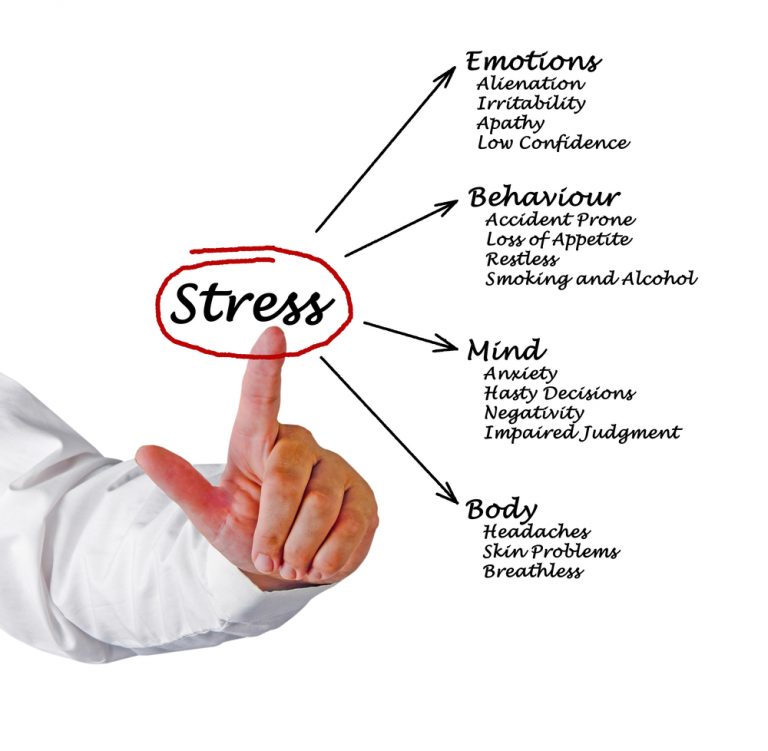 32 841.92] /Contents 234 0 R /group> /Tabs /S /StructParents 91 >> endobj 98 0 obj > /ExtGState> /ProcSet [/PDF /Text /ImageB /ImageC /ImageI] >> /MediaBox [0 0 595.32 841.92] /Contents 235 0R /group> /Tabs /S /StructParents 92 >> endobj 99 0 obj > /ExtGState> /ProcSet [/PDF /Text /ImageB /ImageC /ImageI] >> /MediaBox[0 0 595.32 841.92] /Contents 237 0R /group> /Tabs /S /StructParents 93 >> endobj 100 0 obj > /ExtGState> /ProcSet [/PDF /Text /ImageB /ImageC /ImageI] >> /MediaBox [0 0 595.32 841.92] /Contents 238 0 R /group> /Tabs /S /StructParents 94 >> endobj 101 0 obj > /ExtGState> /ProcSet [/PDF /Text /ImageB /ImageC /ImageI] >> /MediaBox [0 0 595.32 841.92] /Contents 239 0R /group> /Tabs /S /StructParents 95 >> endobj 102 0 obj > /ExtGState> /ProcSet [/PDF /Text /ImageB /ImageC /ImageI] >> /MediaBox[0 0 595.32 841.92] /Contents 240 0 R /group> /Tabs /S /StructParents 96 >> endobj 103 0 obj > /ExtGState> /ProcSet [/PDF /Text /ImageB /ImageC /ImageI] >> /MediaBox [0 0 595.32 841.92] /Contents 241 0 R /group> /Tabs /S /StructParents 97 >> endobj 104 0 obj > /ExtGState> /ProcSet [/PDF /Text /ImageB /ImageC /ImageI] >> /MediaBox [0 0 595.
32 841.92] /Contents 234 0 R /group> /Tabs /S /StructParents 91 >> endobj 98 0 obj > /ExtGState> /ProcSet [/PDF /Text /ImageB /ImageC /ImageI] >> /MediaBox [0 0 595.32 841.92] /Contents 235 0R /group> /Tabs /S /StructParents 92 >> endobj 99 0 obj > /ExtGState> /ProcSet [/PDF /Text /ImageB /ImageC /ImageI] >> /MediaBox[0 0 595.32 841.92] /Contents 237 0R /group> /Tabs /S /StructParents 93 >> endobj 100 0 obj > /ExtGState> /ProcSet [/PDF /Text /ImageB /ImageC /ImageI] >> /MediaBox [0 0 595.32 841.92] /Contents 238 0 R /group> /Tabs /S /StructParents 94 >> endobj 101 0 obj > /ExtGState> /ProcSet [/PDF /Text /ImageB /ImageC /ImageI] >> /MediaBox [0 0 595.32 841.92] /Contents 239 0R /group> /Tabs /S /StructParents 95 >> endobj 102 0 obj > /ExtGState> /ProcSet [/PDF /Text /ImageB /ImageC /ImageI] >> /MediaBox[0 0 595.32 841.92] /Contents 240 0 R /group> /Tabs /S /StructParents 96 >> endobj 103 0 obj > /ExtGState> /ProcSet [/PDF /Text /ImageB /ImageC /ImageI] >> /MediaBox [0 0 595.32 841.92] /Contents 241 0 R /group> /Tabs /S /StructParents 97 >> endobj 104 0 obj > /ExtGState> /ProcSet [/PDF /Text /ImageB /ImageC /ImageI] >> /MediaBox [0 0 595.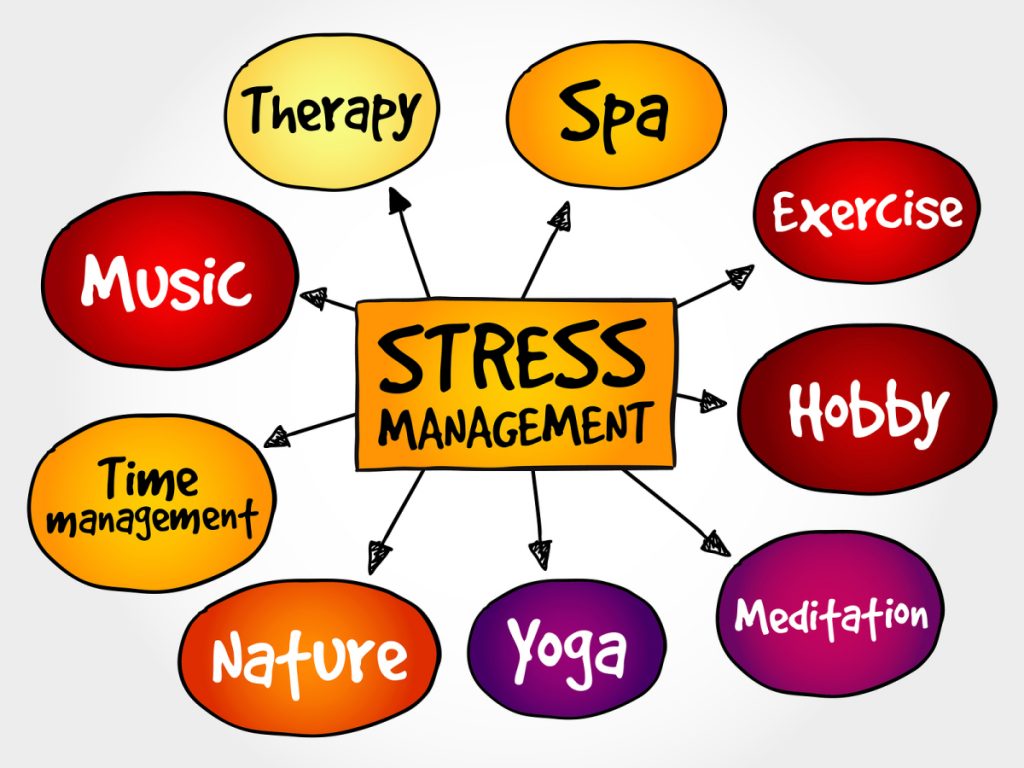 32 841.92] /Contents 242 0 R /group> /Tabs /S /StructParents 98 >> endobj 105 0 obj > /ExtGState> /ProcSet [/PDF /Text /ImageB /ImageC /ImageI] >> /MediaBox[0 0 595.32 841.92] /Contents 243 0 R /group> /Tabs /S /StructParents 99 >> endobj 106 0 obj > /ExtGState> /ProcSet [/PDF /Text /ImageB /ImageC /ImageI] >> /MediaBox [0 0 595.32 841.92] /Contents 244 0 R /group> /Tabs /S /StructParents 100 >> endobj 107 0 obj > /ExtGState> /ProcSet [/PDF /Text /ImageB /ImageC /ImageI] >> /MediaBox [0 0 595.32 841.92] /Contents 245 0 R /group> /Tabs /S /StructParents 101 >> endobj 108 0 obj > /ExtGState> /ProcSet [/PDF /Text /ImageB /ImageC /ImageI] >> /MediaBox[0 0 595.32 841.92] /Contents 246 0R /group> /Tabs /S /StructParents 102 >> endobj 109 0 obj > /ExtGState> /ProcSet [/PDF /Text /ImageB /ImageC /ImageI] >> /MediaBox [0 0 595.32 841.92] /Contents 247 0 R /group> /Tabs /S /StructParents 103 >> endobj 110 0 obj > /ExtGState> /ProcSet [/PDF /Text /ImageB /ImageC /ImageI] >> /MediaBox [0 0 595.32 841.
32 841.92] /Contents 242 0 R /group> /Tabs /S /StructParents 98 >> endobj 105 0 obj > /ExtGState> /ProcSet [/PDF /Text /ImageB /ImageC /ImageI] >> /MediaBox[0 0 595.32 841.92] /Contents 243 0 R /group> /Tabs /S /StructParents 99 >> endobj 106 0 obj > /ExtGState> /ProcSet [/PDF /Text /ImageB /ImageC /ImageI] >> /MediaBox [0 0 595.32 841.92] /Contents 244 0 R /group> /Tabs /S /StructParents 100 >> endobj 107 0 obj > /ExtGState> /ProcSet [/PDF /Text /ImageB /ImageC /ImageI] >> /MediaBox [0 0 595.32 841.92] /Contents 245 0 R /group> /Tabs /S /StructParents 101 >> endobj 108 0 obj > /ExtGState> /ProcSet [/PDF /Text /ImageB /ImageC /ImageI] >> /MediaBox[0 0 595.32 841.92] /Contents 246 0R /group> /Tabs /S /StructParents 102 >> endobj 109 0 obj > /ExtGState> /ProcSet [/PDF /Text /ImageB /ImageC /ImageI] >> /MediaBox [0 0 595.32 841.92] /Contents 247 0 R /group> /Tabs /S /StructParents 103 >> endobj 110 0 obj > /ExtGState> /ProcSet [/PDF /Text /ImageB /ImageC /ImageI] >> /MediaBox [0 0 595.32 841. 92] /Contents 248 0 R /group> /Tabs /S /StructParents 104 >> endobj 111 0 obj > /ExtGState> /ProcSet [/PDF /Text /ImageB /ImageC /ImageI] >> /MediaBox[0 0 595.32 841.92] /Contents 249 0 R /group> /Tabs /S /StructParents 105 >> endobj 112 0 obj > /ExtGState> /ProcSet [/PDF /Text /ImageB /ImageC /ImageI] >> /MediaBox [0 0 595.32 841.92] /Contents 250 0R /group> /Tabs /S /StructParents 106 >> endobj 113 0 obj > /ExtGState> /ProcSet [/PDF /Text /ImageB /ImageC /ImageI] >> /MediaBox [0 0 595.32 841.92] /Contents 251 0 R /group> /Tabs /S /StructParents 107 >> endobj 114 0 obj > /ExtGState> /ProcSet [/PDF /Text /ImageB /ImageC /ImageI] >> /MediaBox[0 0 595.32 841.92] /Contents 252 0R /group> /Tabs /S /StructParents 108 >> endobj 115 0 obj > /ExtGState> /ProcSet [/PDF /Text /ImageB /ImageC /ImageI] >> /MediaBox [0 0 595.32 841.92] /Contents 253 0 R /group> /Tabs /S /StructParents 109 >> endobj 116 0 obj > /ExtGState> /ProcSet [/PDF /Text /ImageB /ImageC /ImageI] >> /MediaBox [0 0 595.32 841.92] /Contents 254 0R /group> /Tabs /S /StructParents 110 >> endobj 117 0 obj > /ExtGState> /ProcSet [/PDF /Text /ImageB /ImageC /ImageI] >> /MediaBox[0 0 595.
92] /Contents 248 0 R /group> /Tabs /S /StructParents 104 >> endobj 111 0 obj > /ExtGState> /ProcSet [/PDF /Text /ImageB /ImageC /ImageI] >> /MediaBox[0 0 595.32 841.92] /Contents 249 0 R /group> /Tabs /S /StructParents 105 >> endobj 112 0 obj > /ExtGState> /ProcSet [/PDF /Text /ImageB /ImageC /ImageI] >> /MediaBox [0 0 595.32 841.92] /Contents 250 0R /group> /Tabs /S /StructParents 106 >> endobj 113 0 obj > /ExtGState> /ProcSet [/PDF /Text /ImageB /ImageC /ImageI] >> /MediaBox [0 0 595.32 841.92] /Contents 251 0 R /group> /Tabs /S /StructParents 107 >> endobj 114 0 obj > /ExtGState> /ProcSet [/PDF /Text /ImageB /ImageC /ImageI] >> /MediaBox[0 0 595.32 841.92] /Contents 252 0R /group> /Tabs /S /StructParents 108 >> endobj 115 0 obj > /ExtGState> /ProcSet [/PDF /Text /ImageB /ImageC /ImageI] >> /MediaBox [0 0 595.32 841.92] /Contents 253 0 R /group> /Tabs /S /StructParents 109 >> endobj 116 0 obj > /ExtGState> /ProcSet [/PDF /Text /ImageB /ImageC /ImageI] >> /MediaBox [0 0 595.32 841.92] /Contents 254 0R /group> /Tabs /S /StructParents 110 >> endobj 117 0 obj > /ExtGState> /ProcSet [/PDF /Text /ImageB /ImageC /ImageI] >> /MediaBox[0 0 595.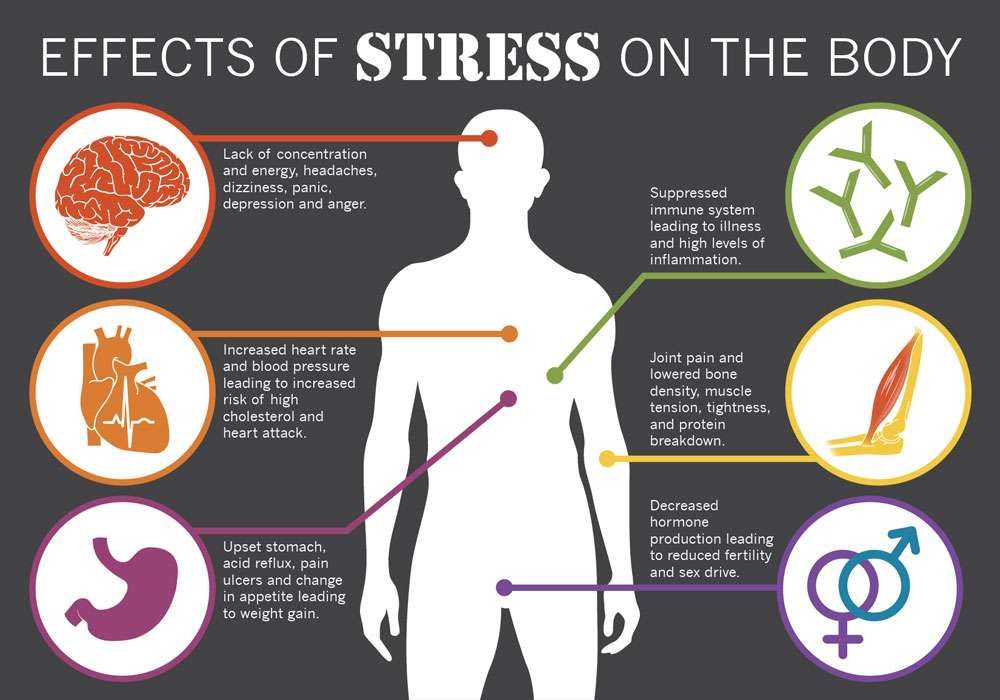 32 841.92] /Contents 255 0 R /group> /Tabs /S /StructParents 111 >> endobj 118 0 obj > endobj 119 0 obj > endobj 120 0 obj > endobj 121 0 obj > endobj 122 0 obj > endobj 123 0 obj > endobj 124 0 obj > endobj 125 0 obj > endobj 126 0 obj > endobj 127 0 obj > endobj 128 0 obj > stream x
32 841.92] /Contents 255 0 R /group> /Tabs /S /StructParents 111 >> endobj 118 0 obj > endobj 119 0 obj > endobj 120 0 obj > endobj 121 0 obj > endobj 122 0 obj > endobj 123 0 obj > endobj 124 0 obj > endobj 125 0 obj > endobj 126 0 obj > endobj 127 0 obj > endobj 128 0 obj > stream x causes, symptoms, treatment, useful or not
- referrals
Neurology Neurorehabilitation center epileptological center Rehabilitation and physiotherapy Headache treatment Gynecology Orthopedics Psychiatry Functional diagnostics Pediatrics Ultrasound diagnostics
Psychology treatment room Otolaryngology Therapy Endocrinology Cardiology Rheumatology Urology Allergology Botulinum therapy Nephrology
- services and prices
- specialists
- clinic
- About clinic
- News
- Reviews
- Question answer
- Licenses
- Requisites
- Supervisory authorities
- Privacy Policy
- contacts
Stress is a state of psychological and physical tension in response to external influences. It can be caused by difficult situations, monotonous activities and emotional factors. Stress helps you adapt to a changing environment, but can have negative health consequences.
It can be caused by difficult situations, monotonous activities and emotional factors. Stress helps you adapt to a changing environment, but can have negative health consequences.
Is stress good or not?
Short-term one-time stress has a positive effect. In response to a stimulus, the body produces three hormones: cortisone, adrenaline, noradrenaline and activates the cells of the immune system.
Thanks to this, a person for a short time period:
-
memory improves;
-
increases the level of immunity;
-
the rate of tissue regeneration increases;
-
intellectual abilities are activated;
-
increases the endurance of the nervous system;
-
the functioning of the sense organs improves.
If a person is systematically exposed to a stress factor, all his organs and systems work hard.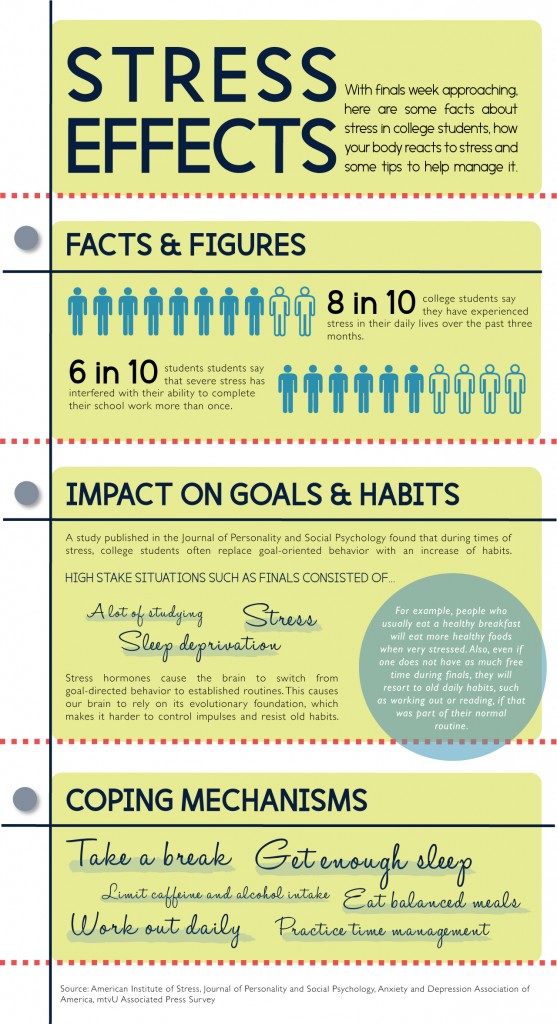 As a result, the body intensively wastes energy, passing through the three stages of the process.
As a result, the body intensively wastes energy, passing through the three stages of the process.
The first stage takes effect at the moment of exposure to the stress factor, and lasts a few minutes. It is followed by a second one lasting from several hours to several days, during which a person is looking for a solution to the problem or a safe way out of the situation.
If the action of the factor continues, the body depletes the adaptive capacity and ceases to minimize the harmful effects of the stressor. It is at the stage of distress that a person experiences overload, psychological disorders, signs of somatic diseases.
Causes of stress
Allocate systemic and mental type of impact of a stress factor. The systemic type is the body's response to an infectious disease, inflammation, injury, light, high or low temperature. Mental type - manifests itself on the emotional and mental sphere, followed by the biological level.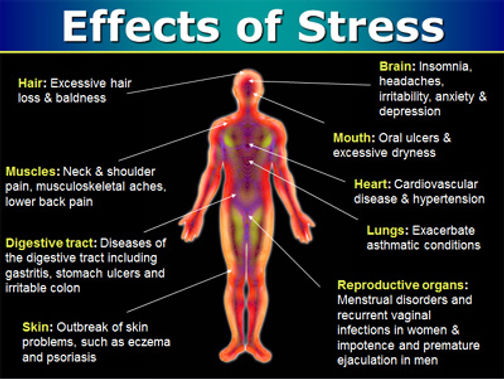
Mental causes of stress include:
-
professional activities associated with increased responsibility;
-
complex relationships in the family;
-
conflicts, phobias, problems in communication, threats of a different nature, intractable problems, dysfunctional social relations in the team;
-
unfulfilled needs, low self-esteem, perfectionism;
-
change of place of residence or work, monotonous activity, divorce, death of a loved one;
-
information overload;
-
lack of rest sufficient to restore the psyche;
-
psycho-emotional tension caused by risk, time pressure, increased workload, novelty of the situation or its uncertainty.
The consequences of prolonged stress in men and women are the same - depression and somatic diseases. Therefore, it is important to timely note the signs of psychophysical stress, identify its causes and eliminate it.
Signs of stress
Prolonged exposure to a stress factor causes serious stress throughout the body, significantly worsening the general mood and well-being of a person.
Common symptoms of developing stress:
-
Muscle tension in the head, neck, shoulders, back.
-
Increased anxiety.
-
Irritability at the slightest provocation.
-
Reduced performance.
-
Depression, apathy.
-
Sleep disorders.
-
Absent-mindedness, deterioration of memory and ability to concentrate, slowing down the pace of thought processes.
-
Chronic fatigue, pessimism, desire to distance themselves from society.
-
Headache, unexplained chest pain.
-
Disorder of appetite, violation of the digestive function.
Often a person acquires an obsessive habit, for example, biting his lips, turning his neck, straightening his hair.